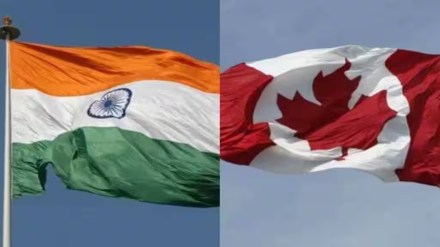India has made a significant diplomatic move by deciding to reinstate e-visa services for Canadians after a two-month hiatus, according to sources, indicating a potential improvement in bilateral relations. This decision follows the Indian government’s recent move to renew specific categories of visa services for Canadian citizens, which was warmly welcomed by Ottawa as “good news for Canadians.”
The resumption of e-visa services is a noteworthy step in the direction of repairing relations that took a hit due to Canada’s allegations of Indian involvement in the murder of Khalistani terrorist Hardeep Singh Nijjar on Canadian soil earlier this year.
Back Story
The diplomatic rift started in June when Nijjar was fatally shot by unidentified assailants outside a gurdwara in Surrey, British Columbia. Subsequently, Canadian Prime Minister Justin Trudeau made allegations in Parliament, citing “credible” links between Indian government agents and Nijjar’s killing, based on intelligence reports. These allegations, backed by US intelligence assistance, have yet to be substantiated with public evidence. India has vehemently denied any involvement, dismissing the claims as “absurd” and politically motivated.
In response to Canada’s actions, India took several retaliatory measures, including the expulsion of intelligence officers, reduction of diplomatic staff, and the issuance of travel advisories. Notably, the suspension of visa services for Canadian nationals in September was viewed as a direct response to Canada’s allegations.
Significance
The decision to resume e-visa services signals a potential thaw in diplomatic ties, with External Affairs Minister S Jaishankar expressing India’s willingness to ease these measures. However, he acknowledged that the relations between the two countries are undergoing a “difficult phase.”
Financial Express Online had reported on October 22, quoting External Affairs Minister Jaishankar hinting at the government’s consideration to resume visa services for Canadian nationals. Reports suggest that a review of the security situation, which led to the suspension of visa services in Canada in September, is currently underway.
During the suspension, India also halted visa services for Canadians in third-party countries and temporarily discontinued the e-visa facility. This development unfolded amidst escalating tensions following India’s decision to expel 41 Canadian diplomats to establish parity in diplomatic representation. While the United States and the United Kingdom supported Canada’s stance, alleging that India acted unilaterally and violated the Vienna Convention, Jaishankar maintained that India’s actions were consistent with the Convention.
